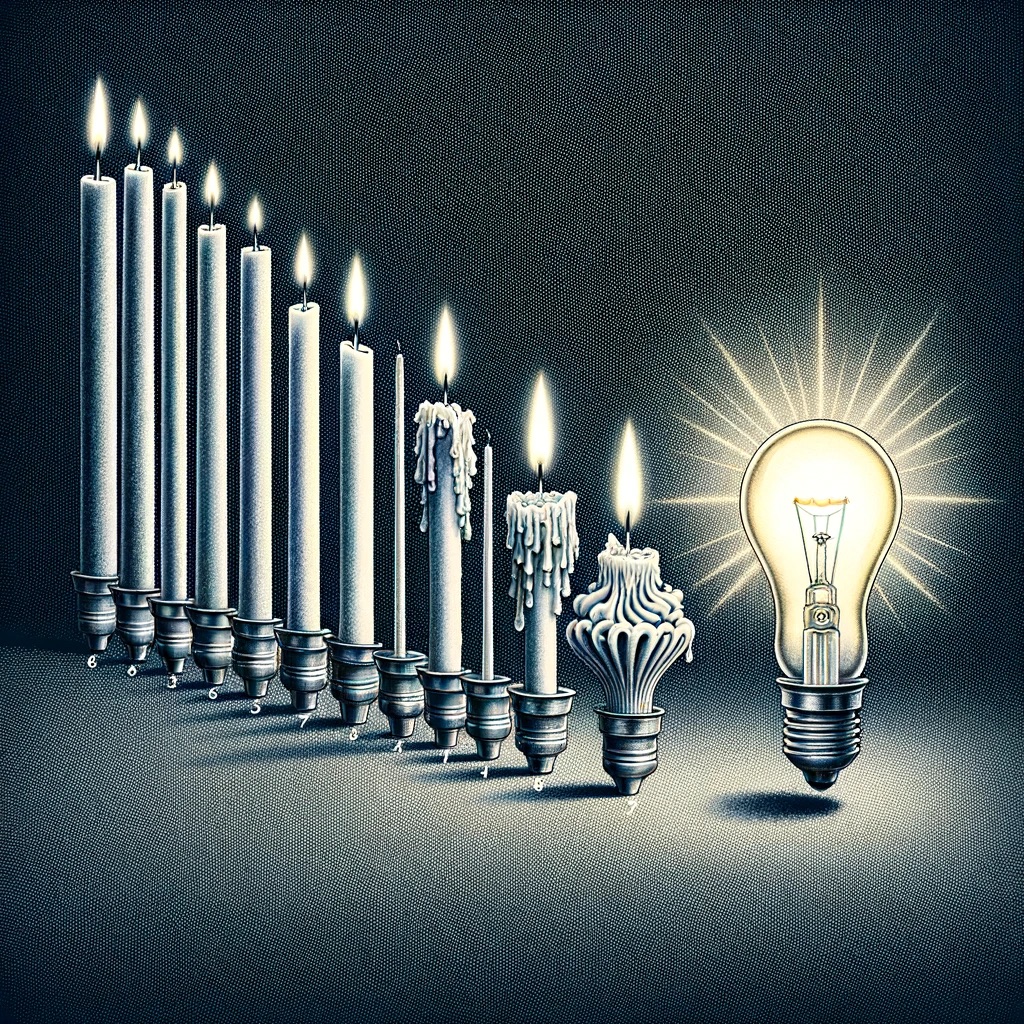“The Electric Light did not come from the continuous improvement of Candles”
“The Electric Light did not come from the continuous improvement of Candles”

By Jan De Backer (opening quote by Oren Harari)
Innovation doesn’t tiptoe; it leaps. The electric light wasn’t born from refining candles but from reimagining illumination. This principle underpins substantial innovation: a fundamentally different approach is often necessary. It’s why large, established systems rarely disrupt from within. Their very nature, rooted in preserving current profits and structures, makes them wary of cannibalizing their own business.
Nowhere is this more evident than in healthcare. It’s a behemoth of entrenched practices and complex regulations. The expectation that the healthcare system will innovate disruptively from within is akin to waiting for a candle to evolve into a lightbulb. It’s not just improbable; it’s against its very nature.
The struggle is real for companies, especially those selling clinical software, within this rigid system. These companies, in pursuit of breaking through, have had to raise significant funds, often at steep valuations. The cost of selling to a system with little incentive for change is exorbitant. It’s a complex dance of trying to integrate new solutions into an old framework while fighting an uphill battle against bureaucratic inertia.
The harsh reality is that not all will survive. Several companies, despite their innovative offerings, might have to shut down. It’s the brutal truth of trying to revolutionize a system from within – a system that’s not only resistant to change but is structured in a way that actively discourages it.
Incremental innovation, or the ‘improving the candles’ approach, is what we can expect from the legacy healthcare system. It’s safe, it’s non-threatening, and it’s slow. Incrementalism is the comfort zone of the incumbent players, allowing them to maintain control without risking their current market position.
However, if we aspire to substantially better healthcare – the electric light of our analogy – we must start thinking outside the current healthcare box. It demands a fresh perspective, unencumbered by the limitations of the existing system. We need innovators willing to question the status quo, not just tweak it. It requires a level of audacity and creativity that doesn’t just push the envelope but reimagines it entirely.
The future of healthcare innovation lies beyond the confines of the current system. It’s in the hands of those daring enough to think differently, to challenge the entrenched norms, and to envision a world where healthcare is not just an improved version of its past but a revolutionary step towards its future.
As we stand at the crossroads of healthcare innovation, the question remains: Are we content with better candles or do we dare to invent the electric light? The answer to this question will shape not just the future of healthcare, but the very nature of innovation itself.

